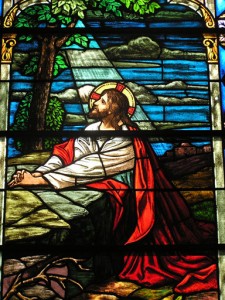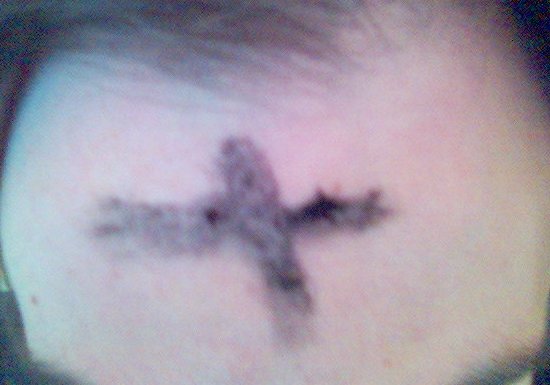Garden Thursday : Thy Will Be Done
 During the Sermon on the Mount, while expounding on anger, adultery, oaths, and retaliation, Jesus repeatedly emphasized the importance of motivation over action. It is not the act of adultery that makes us adulterers, but entertaining the desire. It is not the voicing of our hatred that is the sin, but the hatred itself.
During the Sermon on the Mount, while expounding on anger, adultery, oaths, and retaliation, Jesus repeatedly emphasized the importance of motivation over action. It is not the act of adultery that makes us adulterers, but entertaining the desire. It is not the voicing of our hatred that is the sin, but the hatred itself.
The moral character behind our decisions, that inner seed of the actions which are regulated by Law, was at the core of Jesus’ teachings.
For this reason, Reform Unitarianism honors Garden Thursday — the day on which Jesus accepted the necessity of the painful events to follow — as the highest of Holy Days.
It is at Gethsemane that the teachings of Jesus and the story of Jesus come together. During the Prayer in the Garden, by praying “Thy will be done” in the face of imminent suffering, Jesus made the commitment of moral character he had preached about in the Sermon on the Mount.
It was this decision in the Garden of Gethsemane that signifies the taking of the fruit of the Tree of Life, countering and remedying the imbalance created by the taking of the fruit of the Tree of Knowledge in the Garden of Eden. As that Knowledge brought responsibility to the first Adam, requiring punitive Law to regulate human actions, the moral teaching of the “Second Adam” (as Jesus has been called) transcends and fulfills the Law with the virtue of character.
Law, married to Wisdom, becomes whole. The Lion lies down with the Lamb. Knowledge and Life together bring us back into Paradise.
The arrest of Jesus, his trial, and the crucifixion that followed were, like the material events consequent of any decision, secondary to the spiritual and moral event that took place inside the soul of Jesus when he said to God: “Nevertheless, Thy will be done.”
This fulfillment of Christ’s own teachings was the true pinnacle of his ministry.
_
[A version of this homily has been published on earlier Garden Thursdays]
[The stained glass above is at First Reformed United Church of Christ of Burlingon, North Carolina.]

 Typically, Reform Unitarianism avoids the use of the cross. One reason is that the cross did not become an important symbol in Christianity until well into the 4th Century, after conflationist corruptions had begun to undermine Christian theology. The cross simply does not represent original Christianity.
Typically, Reform Unitarianism avoids the use of the cross. One reason is that the cross did not become an important symbol in Christianity until well into the 4th Century, after conflationist corruptions had begun to undermine Christian theology. The cross simply does not represent original Christianity.